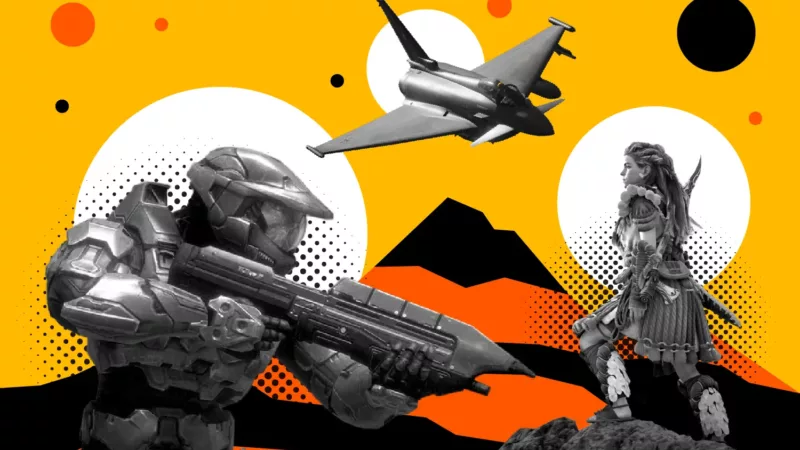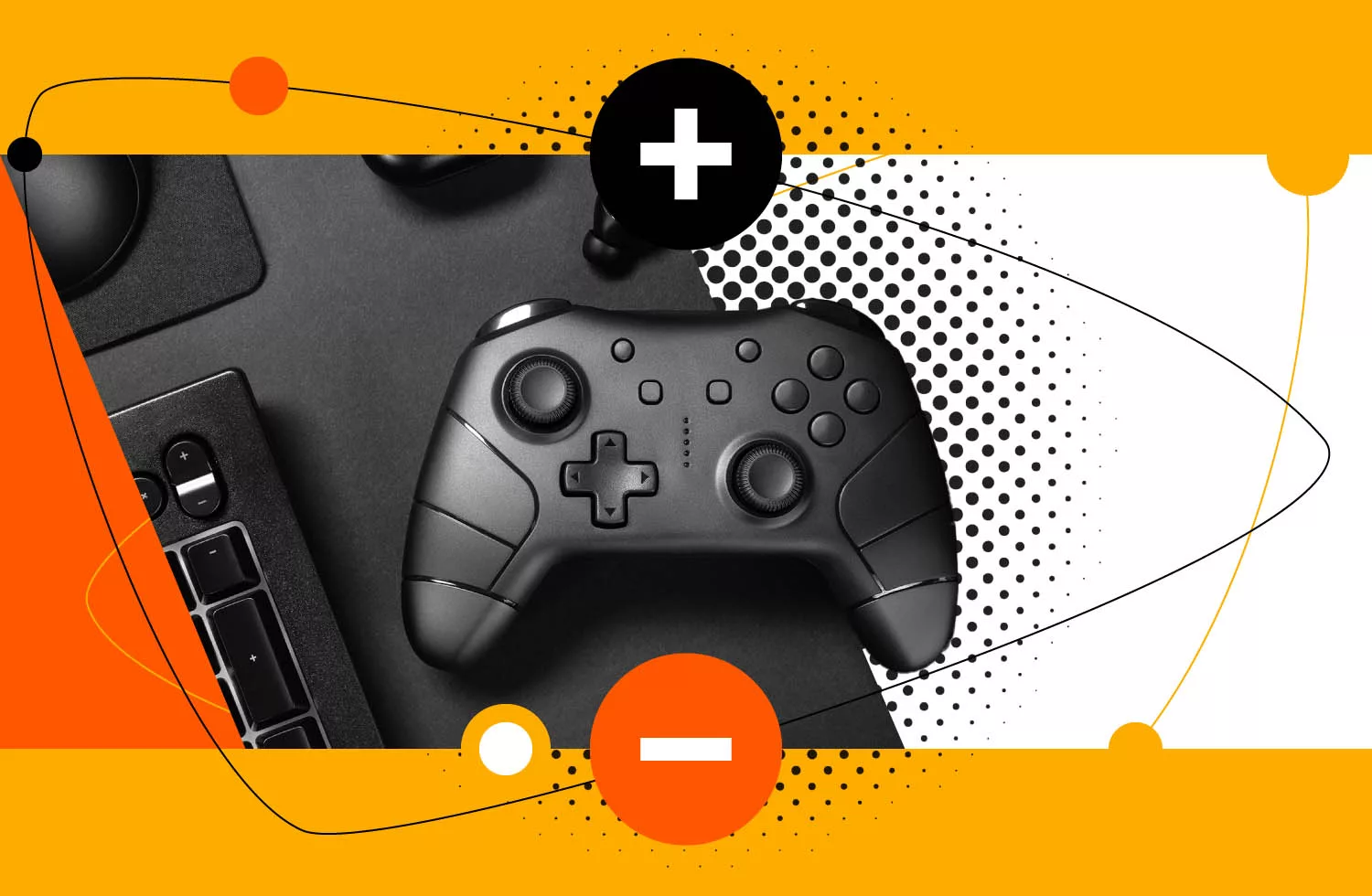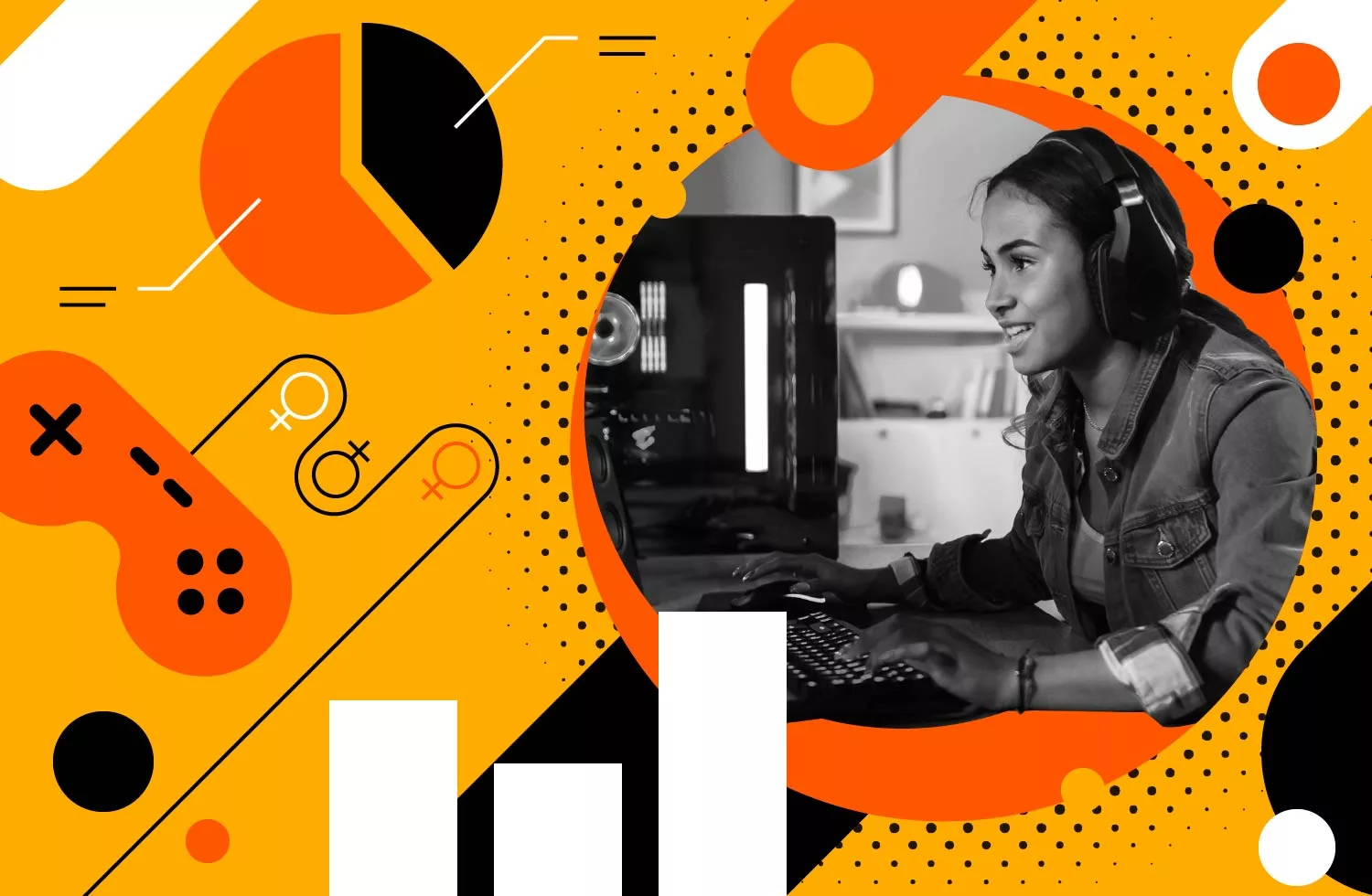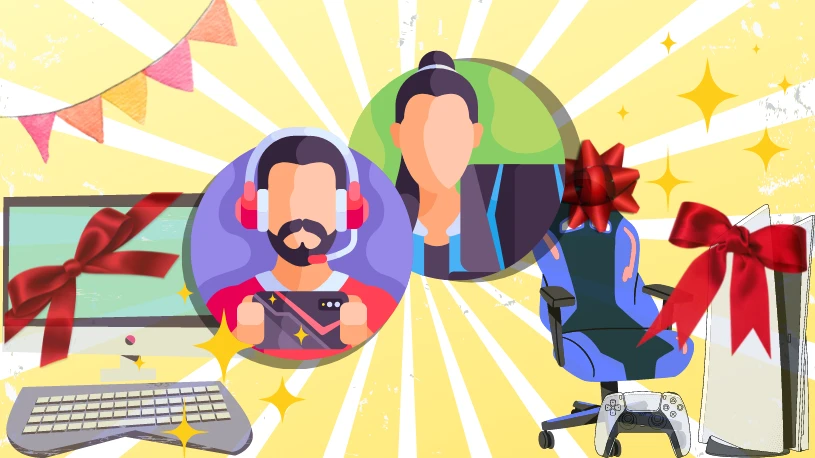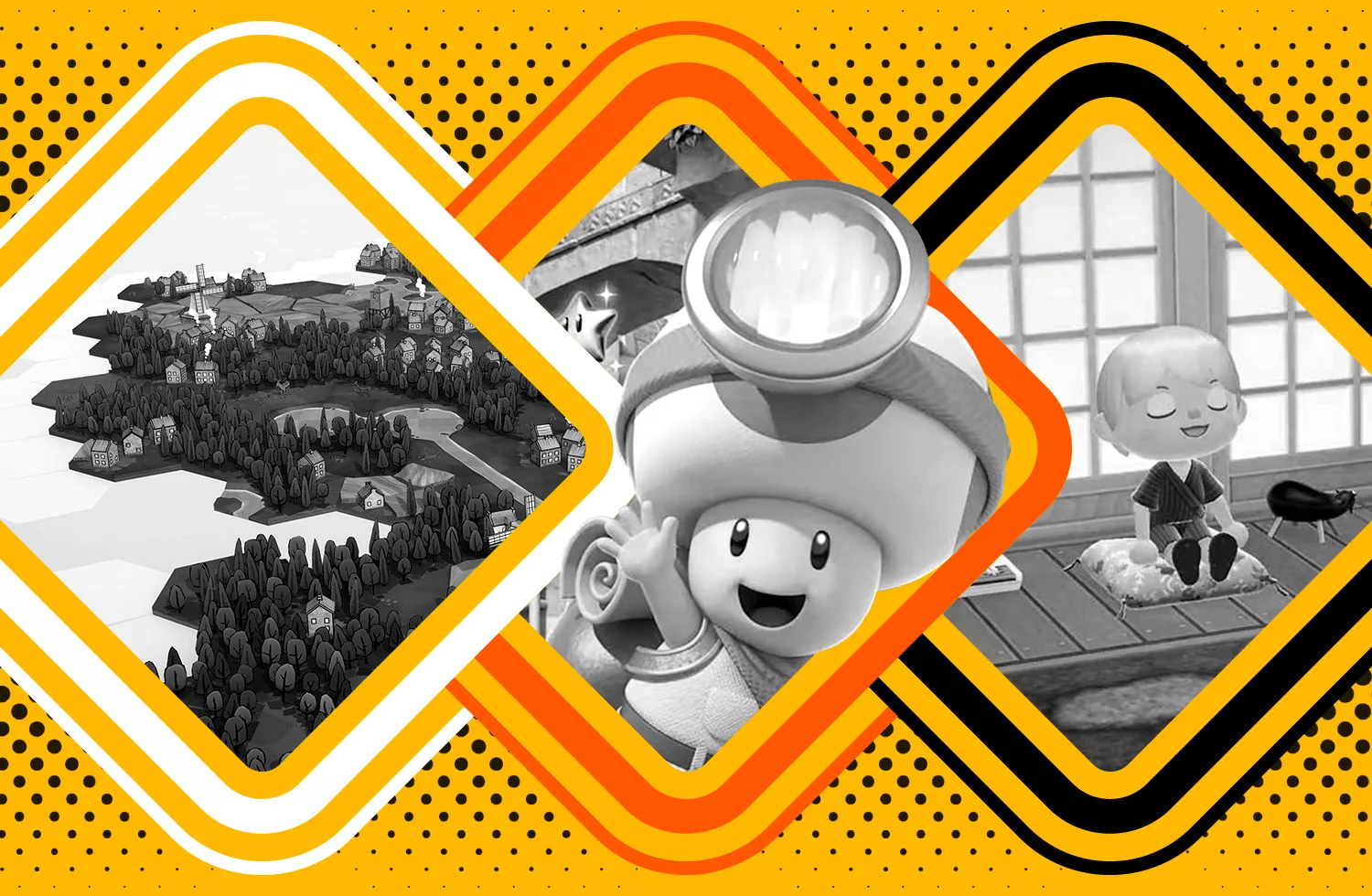
At just 23 (as of September 2021), Denis “electronic” Sharipov is already a veteran of the competitive CS:GO scene. After his first tournaments in his native Kazan aged 11, he played for several teams before he joined NAVI in 2017. Denis is consistently ranked among the top ten CS:GO players in the world.
Watch the video, or keep scrolling for the entire interview transcript below!
Hello everyone, we’re very glad you could join us because today we’re interviewing electronic, and there is certainly plenty to talk about. Let’s go!
How did you get into video games?
Well, when I was a kid, I used to go to kindergarten… My parents were at work, so my big brother had to pick me up from kindergarten.
And one day, he picked me up and took me to a computer club. I was around five then, maybe even four and a half. And that was how I got into video games.
When you were, let’s say, around ten years old and had already been playing games for a while, did you have a moment when you thought, “It would be cool to make a living like this”?
I think I started having thoughts like that when I turned eleven or twelve, probably not earlier.
I mean, before that I just played without realizing that, in the future, it could be a good enough profession to earn a living from.
Well, back then we could hardly imagine that such a profession was possible, right? It was only later that life turned out the way it did. How did you transition from the amateur level to a more professional one?
I played as part of local Kazan teams a lot, and then, at some point, we tried to make the switch to a semi-pro level. We did manage to do that in the end, but by then I had already joined a pro team. And so, starting with Empire, I began playing at a pro level.
Can you recall the hardest match in your life?
No. No, I can’t, honestly.
And why is that? Because all of them were hard, or they were all easy?
There was one match…. at Minor, I played for Rebels. We played more than 70 rounds against Gambit on one map. And on the second map the score was 16:14, but in the end we lost 2:0.
It was a really hard match and after the first map, my nose started bleeding from overexertion…
That’s awful!
But everyone thought that it wasn’t a nose bleed, but…
Okay, okay. Who’s the best player you’ve ever played with? And by who, I mean, who’s the best player you’ve played with on the same team, and the best player you’ve played against?
I guess, the best is Sanya [Aleksandr “s1mple” Kostyliev].
And against, the most difficult… Let’s say it was ZyWoo [Mathieu “ZywOo” Herbaut]. It’s hard to play against him.
What’s the best team you’ve ever played against? I mean, your most difficult opponent.
Astralis. Astralis, yes.
And why is that? Because you—
Well, they started using a new meta altogether, as a team. They started using grenades and at the time that was a new meta. Now it’s standard for all the teams, but they came up with it and I witnessed that moment, and I mean…
It’s a very unpleasant feeling when you’re starting a round and after a grenade, you have 30 HP left. It was very unpleasant, so I’m picking them.
Can you tell us about the funniest or strangest incident you remember from your eSports career?
I can’t recall any right away, to be honest.
Maybe something not particularly funny, but unexpected? Like, you came to a tournament and someone stole your equipment. Things like that have happened to some players at tournaments.
No, for me… we once stayed at a hotel in Germany, I don’t remember which city or tournament it was, but someone stole my sneaker from my room.
Just one sneaker?
Yeah, and they left the other one, something like that. I’m sure it was stolen because it couldn’t have just disappeared from the room.
Well, clearly.
So, you know, that’s probably the strangest thing.
It’s not exactly related to eSports, but…
Well, it’s related to your career since you were at a tournament at the time. So yeah, that counts. Interesting.
We know many athletes have rituals that they have to follow before a match, and they’re generally superstitious people. What about you? Do you have any superstitions or rituals that you follow before official matches?
No.
You’re not a superstitious person?
No, not at all.
As it should be. A realist. Okay, what kind of training regime do you have? Is it just a case of playing CS:GO for many hours per day or is it something more sophisticated?
Well, I can log in to DOTA and train on that. One or two games every three or four days.
So you’re getting ready for a DOTA career?
No, I’m not. But it might come in handy, just in case I need to help NAVI out at the International.
You would do that?
Well, of course.
Well guys, keep that in mind, just in case. But speaking of CS, how much do you play and what does your CS:GO training regime look like?
Well, it depends. I mean, we train a lot as a team. But if we’re talking about individual training, I can play three or four games on FACEIT in the evening, or play DM for half an hour, or kill a couple thousand bots.
But in general… nothing special. Just like everyone else.
How much time do you spend working on the mental side of playing competitively?
Well, I can’t say I spend any time on that at all. It just kind of happens. You know you have a match coming up and your body tunes into that mindset on its own.
How do things like nutrition and physical fitness come into it, if at all? Well, on a match day, they do.
Before a match, I’ll choose what I’m going to eat—
And what is that, usually?
It depends. I try not to eat heavy food. I might go for a vegetarian pasta, something without meat. I really like stuff like that.
Do you spend much time working on the tactical side of the game? Maybe you do some analysis or watch demos before matches?
Well, sometimes we get material taken from demos, and we watch it together. But in general, it’s very rare that I’ll watch demos and analyze them.
What is it about eSports that you like the most?And what would you change?
I would bring LANs back, I think, first of all. Even if, at first, they would be without spectators, because that LAN energy, so to speak, is what we’re really missing.
There was a LAN Major in Singapore recently, and it seems to me no one really appreciated that.
I think the DOTA players, at least, were glad they had a chance to play at a LAN.
Could you tell us what you like about eSports the most, aside from the game itself? Maybe it’s the popularity, or the subscribers, or the money, or your teammates?
What do you like about eSports the most as a profession?
The subscribers, I guess.
So, it’s the popularity after all, right?
Well…I wouldn’t call it popularity, more the fact that people like what we do.
So, it’s the support from the fans?
Yes, yes.
Cool. What are your goals for this year? Both in terms of eSports and more personal plans. Can you share some of your plans with us?
In terms of eSports we want to be ranked number one, just like everyone. We’ll be doing everything we can for that.
We’ll be trying to do some new things that we didn’t do before in order to improve our results and bring NAVI back to greatness.
Uh-huh, and if we’re talking about more personal goals? Have you ever thought about what you would have been doing if you hadn’t chosen eSports? Or maybe what you will do after your professional eSports career sometime in the future?
Well, I think that I like the idea of being a coach in the future. If everything goes according to plan, I’d like to become a coach.
So, a logical transition from your pro gaming career. Nice. Well, I hope we won’t see you in the role of a coach anytime soon and we still get to enjoy watching you play.
Which aspects of your game would you like to change or improve?
Well, I think… I’d like to improve my shooting, definitely, so I hit the target more. And… I want to have less of those moments, you know, where you get carried away during a round. Something like that.
To be more level-headed?
Yeah, yeah.
What do you think – does everyone on a team need to be friends and get along for the team to be successful? This cohesion, is it important to win?
I’m convinced it is, yeah. I’ll always have my own opinion on the subject, and while I don’t think that people on a team have to be best friends, there does need to be a warmth there, so to speak.
I mean, why not, that’s always good for the team. When it’s like that, you see people in a different light, you know what to expect from them, that kind of thing.
Sure. And how do you think that cohesion in a team comes about? I mean in terms of the game, not personal relations. I know that a new player joined your team recently, so how do you usually onboard new teammates, and how does the team learn to play together with someone new?
So, when he joined us, the first thing we did was to tell him about all the strategies we’ve used. So, we told him what things we added and what we changed or fixed, how we switched positions on some maps.
We try to help a new player, above all.
Can you tell us one surprising fact about you that nobody knows? Or maybe that your fans don’t know about.
I have no idea.
I think you know exactly what to say.
No, I was just thinking about what I should say, and I’d say I haven’t been hiding anything in particular about myself.

Well, I agree, it’s very difficult to recall something right off the bat.
How has your career as a pro gamer changed you as a person? Maybe you developed some personality traits that weren’t there before?
Well, yeah, I’ve visited many countries, seen many new things, and come to understand how people live in other countries, in general. And I’ve tried to adopt something from each of them.
Yeah, the more you see the more you develop as a person. That’s cool.
What has been the hardest thing about the career and life path you’ve chosen?
I think it’s all the travel, how you never actually get to see your family because of it.
You were only 11 years old when you started participating in Counter-Strike competitions. Can you tell us how come you started so early, and what difficulties you faced starting out?
I visited a local computer club a lot, and I met people there. And we heard that there would be some kind of tournament, though not for prize money, but for some…
Equipment, right?
Equipment, yeah, maybe a gaming chair or something like that.
At least it was a gaming chair, not a regular one!
Yeah, and the 2nd place prize was the game The Witcher, which had just come out at the time. And you couldn’t find it anywhere yet, at least not in Kazan. And so we decided to give it a shot and we came in 2nd. After that I went to another tournament, actually the very next day.
It was in Kazan, a non-professional one. There we came in… I don’t remember which place exactly, but we played pretty well.
But you got a prize?
There was a match we lost because of my mistake.
You still remember it?
I remember it vividly, it was the de_dust 2 map, and I dropped from the catwalk right onto the CT spawn point in a 4vs3 situation, and we lost that round, and the match too.
You weren’t kicked off the team after that?
After that, I basically didn’t play in any tournaments for a year. I switched to KZ—Kreedz—and started jumping. I probably didn’t play competitively for two years, even. I think it was two years, yeah.
Then I came back, and have been playing a lot since then.
And in general, are you glad you had that eSports experience so early? Was it useful later in your career?
Yes, I saw a lot of stuff, especially when I played at local tournaments…
Things can be pretty wild there.
Yeah, I won’t talk about what’s going on there, but I believe it helped to some extent. Especially in terms of interacting with teammates, because I started playing in a team when I was 11.
Would you recommend young amateur players—or kids who are thinking about a career as a professional Counter-Strike player—to start so early? Or maybe, to wait until they’re a little older?
Well, if they want, they can start as early as possible. I mean, nowadays, we can call it a type of sport. Special academies are opening up, and in those academies, they train you from a very young age.
They teach you psychology and other things I had no idea about when I was 11 or 12.
What would you recommend to amateur players who want a career in eSports?
Well, first of all, to get rid of their ego. To come to terms with the fact that CS is not a one-player game – it’s a game of five people – and to believe in themselves.
If they do that, they’ll succeed.
Before you joined NAVI, you played for several different teams—you had quite a lot of eSports experience. In your opinion, why do teams fall apart, usually? Why do people get kicked out of their team?
Is there some common reason why teams are sometimes quite short-lived?
When you start playing at the Tier 3 level in the CIS region, I think that not all players have the skills sufficient to move forward, to play better at a higher level. You have to remove those players and replace them with new ones who do have the will to fight and win, at least at that level.
And then you, of course, go down that same road, and eventually you get noticed and invited to join a stronger team. That’s exactly what happened in my case.
What has been the role of coaches, mentors, or maybe in-game leaders in your career? The people who mentor others, in general.
Before NAVI, I didn’t have a coach. I mean, it wasn’t until NAVI that I learned what a coach was and what role they played.
At FlipSid3, everything was resting on Andrey’s [Andrey “B1ad3” Gorodenskiy] shoulders—he was a captain, a coach, you name it, he was responsible for it all.
From Andrey I learned a lot in terms of tactics, strategy, seeing the macro picture to better understand everything.
As for Misha [Mykhailo “kane” Blagin], I think the thing I liked about him is that he knows how to believe in someone, how to make them believe in themselves.
How to motivate them?
Yeah, yeah, yeah. Every coach is unique in their own way. Then again, I already worked with Andrey at FlipSid3, and at NAVI it’s generally all the same.
Well, you already knew Andrey’s methods.
Yeah, yeah, yeah. I can’t say that either of them is better than the other. Honestly, I think both of them are great in their own way. Many people just underestimate Misha as a coach, I’m sure of it.
I agree, I agree completely.
Alright, thank you so much for your sincere answers.
Thank you.
Thanks for reading our 1:1 interview! For more exclusive content and interviews, check out our Blog!


